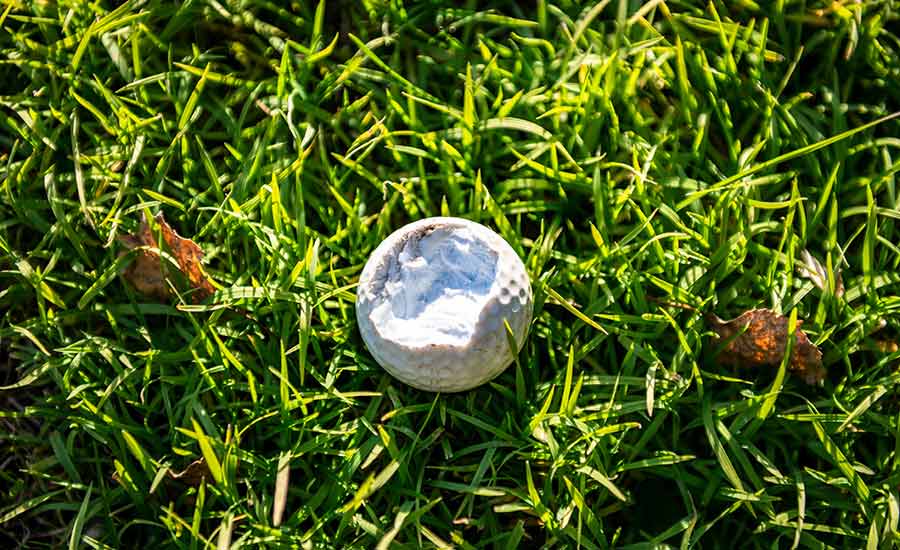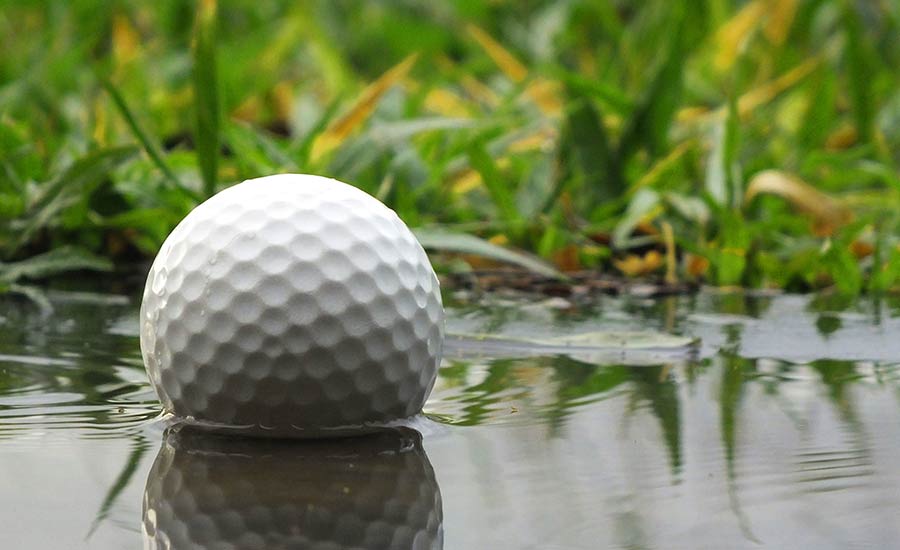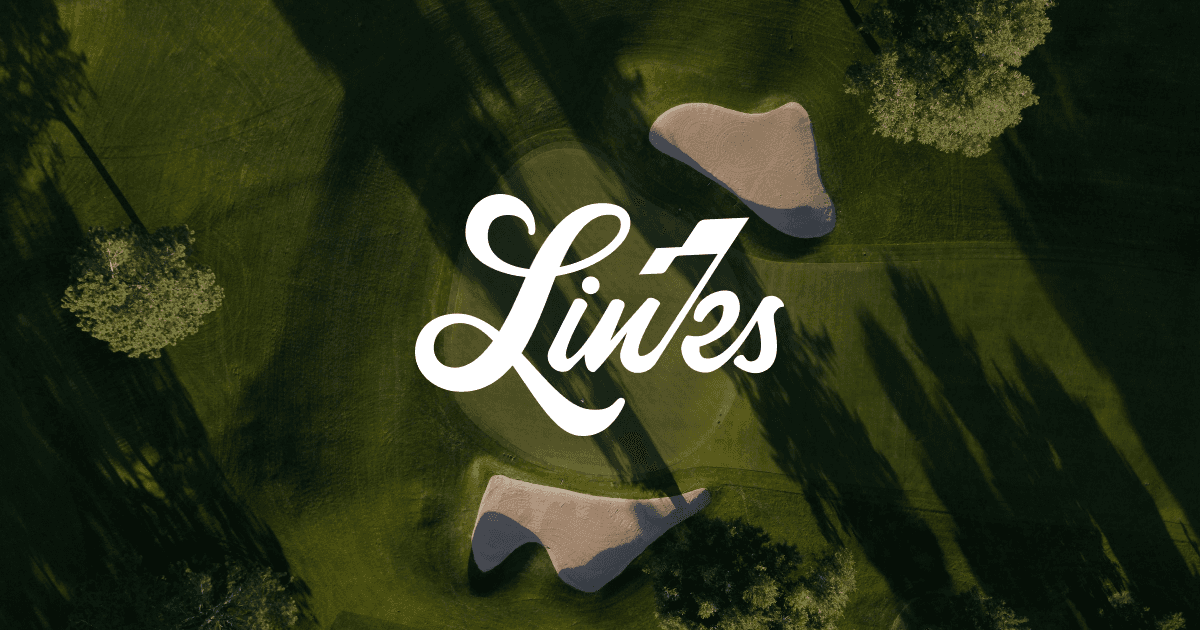News
A Guide On How Long Golf Balls Last
Whether you're an avid golfer or new to the game, you might wonder, do golf balls go bad over time? And if so, how can you tell when to replace them? We're here to answer those questions and others in this golf ball longevity guide. We'll explain how long golf balls last, what factors affect a golf ball's shelf life, and how to extend the shelf life of your golf balls to make the most out of your investment.
Do Golf Balls Go Bad?
Yes and no, golf balls do not necessarily go "bad" because they spoil or rot like food. However, their performance can degrade over time due to various factors. The lifespan of a golf ball is influenced by its construction, materials, storage conditions, and usage. Golf balls can become damaged or degraded by water, heat, cold, sunlight, dirt, and age. These factors can also affect golf balls' weight, compression, elasticity, distance, accuracy, feel, sound, and appearance.
How Long Do Golf Balls Last?
The average shelf life of a golf ball is about 10 years if it's unused and stored correctly. However, the average lifespan of a golf ball used regularly is about seven rounds of golf. Why seven rounds? Because that's when a golf ball typically starts to lose its distance and spin, which can affect your accuracy and control on the course. Of course, these numbers are averages and may vary depending on the type and quality of the ball, the conditions of the course, and your swing speed and style. Some balls may last longer than others, depending on their construction and material.
How To Tell if a Golf Ball Has Gone Bad?
The best way to tell if a golf ball has gone wrong is to inspect it visually and physically before you use it. Here are some signs that a golf ball is no longer suitable to play with:
Cracks or cuts: If you see cracks or cuts on the ball's surface, it means that the ball's integrity has been damaged. This can significantly affect the ball's flight and spin.
Discoloration or fading: If you notice any discoloration or fading on the ball's surface, the cover material has been exposed to UV rays or chemicals. This can slightly affect the ball's appearance and feel.
Scuffs or dents: If you see any scuffs or dents on the ball's surface, the ball's aerodynamics have been altered. This can moderately affect the distance and accuracy of the ball.

Factors That Affect a Golf Ball's Shelf Life
Several factors play a role in the shelf life of your golf balls, including:
Wear and Tear
Every time you hit a golf ball with your club, you create an impact and friction that can damage the surface and core of the ball. Over time, this can cause cracks, cuts, scuffs, or dents on the ball, reducing its aerodynamics and flight. Hitting hard objects like trees, rocks, or cart paths can also cause severe damage to the ball.
Exposure to Low or High Temperatures
Golf balls are designed to withstand typical weather conditions like sun, wind, rain, or snow. However, extreme temperatures or humidity can affect the performance and durability of the ball. High heat can soften the cover and core of the ball, making it lose shape and elasticity. On the other hand, low temperatures can harden the ball, making it less responsive and bouncy. Moisture can also penetrate the cover and reach the ball's core, causing it to lose its distance and spin.
General Aging
Even if you store your golf balls properly and don't use them often, they can still degrade over time due to natural aging processes. Over time, rubber can oxidize and lose its elasticity, plastic can become brittle and crack, and ionomer or urethane can fade or discolor.
Construction and Materials
High-quality golf balls with advanced construction techniques and materials have a longer shelf life than lower-quality balls. The resilience and durability of the materials used can significantly impact the ball's performance and lifespan. Most golf balls are made of rubber, plastic, ionomer, or polyurethane. These materials have different properties and characteristics that affect how they react to impact, temperature, moisture, and other elements.
Storage Conditions
Proper storage is essential for maintaining a golf ball's shelf life. To get the most out of your golf balls, store them in a cool, dry place away from direct sunlight and extreme temperatures.
How To Extend the Shelf Life of a Golf Ball
To make your golf balls last longer, you can do a few things to extend their shelf life. Here are some tips for extending the life of a golf ball:
Buy Quality Golf Balls
Quality golf balls are made of durable materials and layers that withstand more wear and tear. They may cost more upfront but will last longer and perform better than cheaper, low-quality golf balls.
Use the Right Golf Balls
Different golf balls benefit different players and work better in certain conditions. Using the right golf ball for your game can help you improve your performance and avoid unnecessary damage to the ball.
Clean Your Golf Balls Regularly
Cleaning your golf balls regularly can help remove dirt, sand, or grass that may stick to the cover and affect the ball's flight and roll. You can use a damp cloth or a soft brush to wipe off debris from the ball or mild soap and water to wash off stains. Just make sure to dry the ball thoroughly before storing it.
Avoid Prolonged UV Exposure
Limit the amount of time your golf balls are exposed to sunlight. UV rays can degrade the outer layer, leading to discoloration and reduced performance.
Keep Golf Balls Away From Water
Avoid submerging golf balls in water for extended periods of time. Water absorption can affect the balls' weight and performance. If a ball gets wet, dry it off before storing it.

Do Golf Balls Go Bad? + More Golf Beginner Guides
Eager to take your first swing on the lush fairway? Embrace the thrilling yet challenging world of golf — one of the most gratifying and exhilarating sports out there!
Just starting out? Explore more of our beginner guides:
Swing Into the Links Golf Community?
Links Golf is a membership program providing access to private golf clubs worldwide and other perks like equipment and apparel discounts. After joining, you only pay for the golf you want to play, with prices listed for each course on the map you can access. Members can play each course up to three times yearly without geographic restrictions. Submit your preferred course, date, time, and number of players, and your club concierge will handle the arrangements. Bring up to three guests with you and enjoy the elite golfing experience that Links Golf offers. Take the quiz to see available courses near you and discover the benefits of becoming a Links Golf member.
Interested in Golf Club and Gear Discounts?
With a Links Golf membership, you can enjoy exclusive discounts on clubs and gear, including a $100 Five Iron gift card and access to golf events at top courses. By joining Links, you receive over $400 in instant value, making investing in quality equipment easier and enjoying the game you love.
Depending on your membership tier, all new members receive a welcome gift, including a bag tag and a limited-edition Bettinardi headcover. This thoughtful welcome package is just one of the many perks of joining Links Golf, setting the stage for a premium golfing experience from day one. Enhance your game with the official PGA TOUR game tracker, which is included with your Links Golf membership. Free Arccos Smart Sensors help you analyze and improve your performance, ensuring you play your best every time you hit the course.
Do Golf Balls Go Bad?
How Long Do Golf Balls Last?
A golf ball's average shelf life is about 10 years if stored properly. However, regular use typically reduces this to about seven rounds of golf.
How Can You Tell if a Golf Ball Has Gone Bad?
Look for cracks, cuts, discoloration, fading, scuffs, or dents. These are signs that the ball's performance may be compromised.
What Factors Affect a Golf Ball's Shelf Life?
Wear and tear, exposure to extreme temperatures, general aging, construction materials, and storage conditions all affect a golf ball's longevity.
How Can You Extend the Shelf Life of a Golf Ball?
Invest in quality golf balls, use the right type for your game, clean them regularly, avoid prolonged UV exposure, and keep them away from water.
What Benefits Does a Links Golf Membership Offer?
Links Golf membership provides access to private golf courses, club and gear discounts, a welcome gift, and advanced game tracking tools, offering over $400 in instant value.
What is Links Golf?
Links Golf is a membership program that allows you to play at private golf clubs worldwide with no geographic restrictions. It provides a premium golfing experience at a fraction of the cost of traditional memberships.
Membership Designed For The Modern Golfer.
Join a thriving community of like-minded golfers, experiencing the best the game has to offer, both on and off the course.
Takes less than 1 minute.

